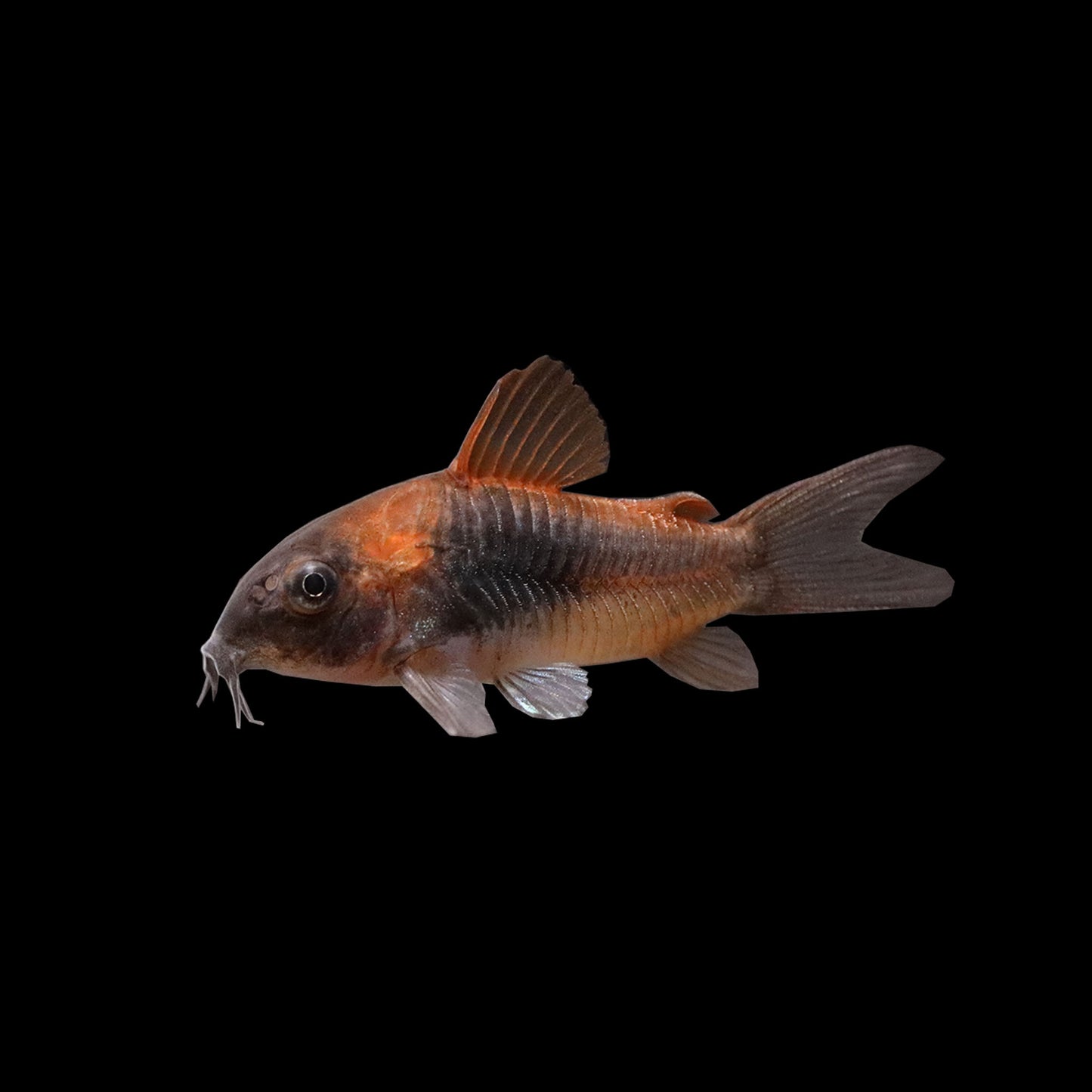AQUARIUM ARTS
Venezuela Corydora (Corydoras venezuelanus)
Venezuela Corydora (Corydoras venezuelanus)
Couldn't load pickup availability
Description:
The Venezuela Corydora is a stunning bottom-dwelling catfish known for its bronze body with a vibrant orange to reddish hue along its sides, making it one of the more colorful Corydoras species. It features the classic Corydora shape with a rounded body, whisker-like barbels, and peaceful, social behavior.
Size:
Up to 2.5 inches (6 cm)
Aquarium Size:
A minimum of 20 gallons is recommended for a group, as they thrive when kept in social groups.
Water Parameters:
-
Temperature: 72°F to 78°F (22°C to 26°C)
-
pH: 6.5 to 7.5
-
Hardness: Soft to moderate
Temperament:
The Venezuela Corydora is a peaceful community fish that shows no aggression. They are best suited for calm community tanks and spend most of their time foraging along the bottom.
Group Size:
Best kept in groups of 6 or more. Being highly social, they feel more secure and exhibit natural behaviors when kept in larger groups.
Compatibility:
Venezuela Corydoras are highly compatible with other peaceful fish such as tetras, rasboras, guppies, and gouramis. Avoid housing them with aggressive or fin-nipping species.
Diet:
Omnivorous. They are bottom feeders that thrive on sinking pellets, algae wafers, and occasional live or frozen foods such as bloodworms, daphnia, and brine shrimp. Ensure a balanced diet with both protein and vegetable matter.
Care Level:
Beginner. They are hardy and suitable for novice aquarists but require clean water and regular maintenance.
Planted Aquarium:
Venezuela Corydoras are excellent for planted aquariums. They do not damage plants and appreciate the cover plants provide. A soft substrate, such as sand, is recommended to protect their sensitive barbels.
Invertebrate Compatibility:
Safe with most peaceful invertebrates, including shrimp and snails. They do not prey on tankmates but may scavenge uneaten food near them.
Lid Recommendation:
A secure lid is recommended as Venezuela Corydoras can occasionally dart to the surface for air due to their ability to breathe atmospheric oxygen.
Additional Notes:
These Corydoras are known for their playful and active nature, often seen scavenging along the bottom together. They rely on their barbels to find food, so a smooth substrate is essential to prevent injury.
Disclaimer:
Aquarium Arts cannot guarantee compatibility with your current fish or the fish you buy and cannot be held liable for fish lost due to aggression.
Share


